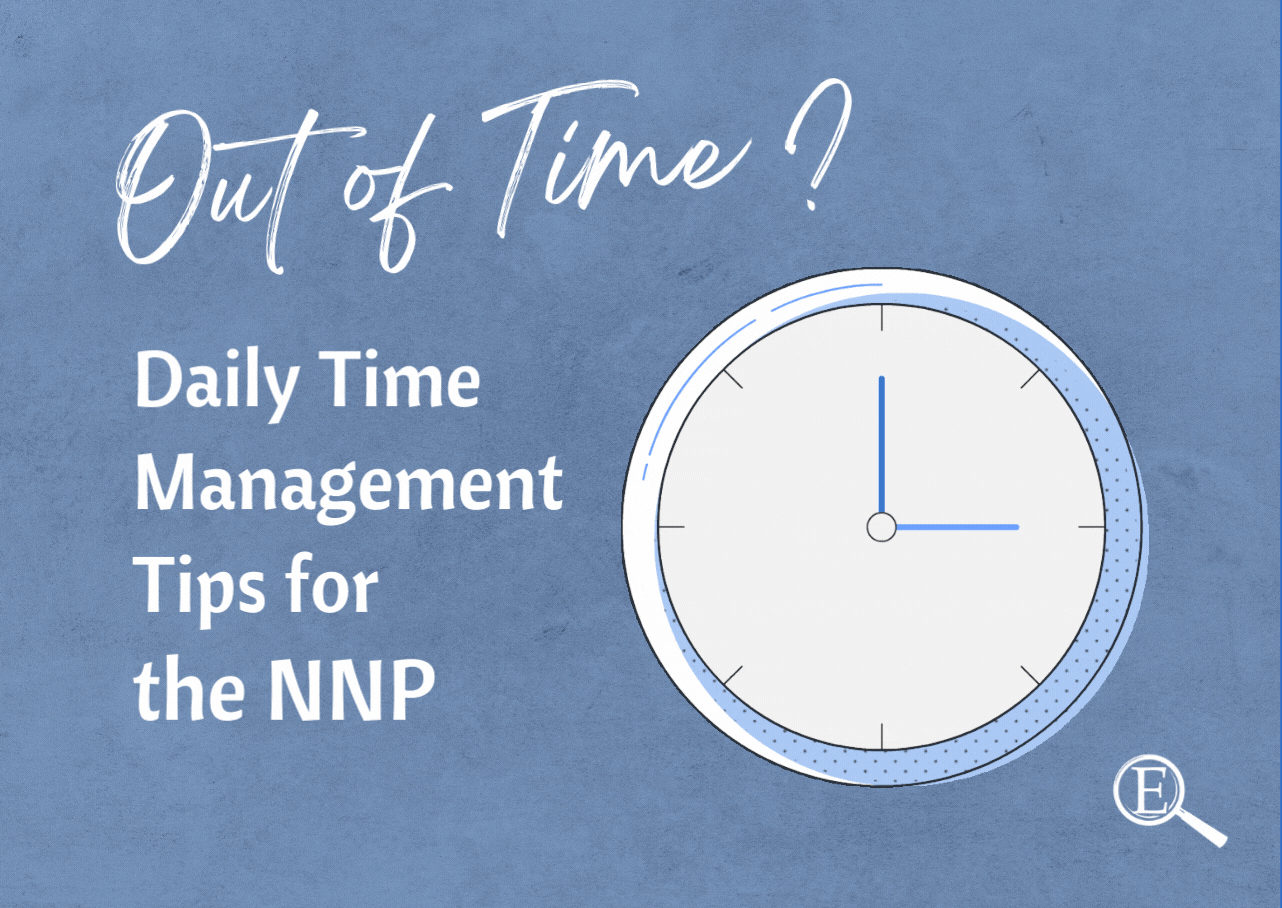NNPs function differently from most other nurse practitioners due to the environment within which we work. We don’t have office hours, we work shifts similar to our nursing colleagues in the NICU. Whether you work 8, 10, 12, 16, or 24 hour shifts, time is always moving forward and requiring you to stay on top of the multitude of tasks that must be accomplished. So how do we fit it all in?
In most NICUs, you arrive at work (most NNP jobs start at 7am), receive a report on your patients (average patient load is 6-10) and then need to “pre-round” on your patients (gather/review data such as vitals, fluid intake and output, lab work, ventilator settings, etc.). ALL of this is expected to happen before actual rounds start between 9-10am. Oh, and did I mention you need to examine your patients as well? But what about breakfast? Did you eat before coming to work? Was the line at Starbucks/Dunkin’ too long? Do you work with a large group of NNPs?
Preparation is an NNP’s best friend
Ok, let’s start with a little tough love. There are essential tasks associated with being an NNP. “Secretary” work is one way many have described it, but when you stop and think about it, are you really taking ownership of your career and abilities if all you do is complain about the busy/paperwork? The more proactive action is to understand your value in the wheel of the NICU and apply your clinical knowledge to the care of the babies rather than act like you are still in high school.
Now that’s been said, let’s talk about actual ways to improve your day. As stated in the scenario above, most places start with getting sign-out from the on-call/overnight team, dividing up patient load based on acuity and/or location, obtaining pertinent vital signs, intake and output, lab values, x-rays from the medical record, and reviewing notes. Next, we join the multidisciplinary team for daily rounds. If you are part of a teaching institution, this can be an intimidating feat as you are called to present the patient data and have a plan of care ready – even if the doctor disagrees with your plan and has a plan of their own.
Tips to stay on schedule
Prepare the night before
Make sure you are prepared (caffeine, food) for your upcoming shift. Will it be an overnight shift? If you need additional tips on eating well as a busy NNP, look here. Pack your bag the night before with the essentials you’ll need so you aren’t rushed in the morning. Also, if possible, find out which patients you’ll have and look them up the night before. You might even speak to the night team to get a brief report on them so you aren’t walking in completely blind the next morning.
Minimize the distractions
Know your triggers. We are social creatures and love to talk about our lives, home, or work issues (patient or otherwise). If a noisy environment causes you to not be able to focus, manage it by either using headphones or finding a quieter spot to work. Don’t be afraid to let your colleagues know you need to catch up with them later.
Organize your mind
When you have a master plan of action, tasks become easier. Getting back on track when the inevitable distractions occur is also more attainable because you have created a system to fall back on. For example, a lot of NNPs I know use abbreviations to help trigger their memory of tasks that need to be accomplished within a given day. P/E/R/O/N/U/S (preround, examine, round, orders, notes, update parents, sign-out). By writing down whatever system helps you best and checking the tasks off as you go, you can easily see what still needs to be accomplished.
Master your EHR
Take the time to truly get to know how to use the electronic health record your facility utilizes. Learn shortcuts from others and if you find a shortcut, share it! Don’t hoard the information, we can all benefit from performing efficiently.
Know your resources… and use them
We talk a lot about collaborative management of our patients with our physician colleagues in the NICU. The tasks of the day not only belong to you and you alone, so don’t pretend your name is Atlas. Ask for assistance, whether it be a call to the consultant or the parents, ordering medications, labs, etc., and writing notes – the patients will benefit from a true collaboration amongst their caregivers.
To say our days as an NNP are unpredictable is an understatement. The knowledge we need to provide the care to our patients and their families, along with the resources we need to know how to utilize, can seem overwhelming. By taking a proactive approach to your day, you can manage it all and avoid burnout. My biggest takeaway for you is… don’t be afraid to ask for help. You are not alone, even if you work alone.

